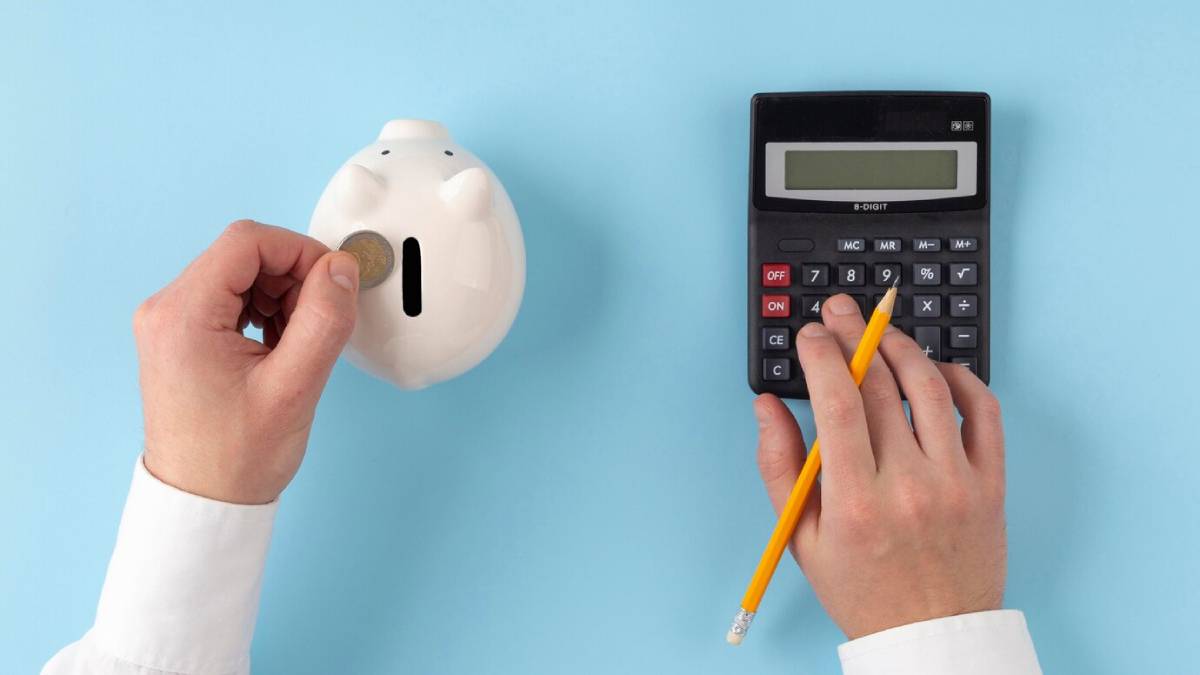
Financial Calculators: Planning Your Future
Have you ever considered how much you must save each month for your dream home? Or the golden age when you can swap your briefcase for a beach chair? With savvy investing, those dreams could blossom into reality! It’s time to turn your financial fantasies into tangible treasures.
You don’t need to be a maths genius to find out — you just need the right financial calculators. Today, we’ll examine how budgeting tools like calculators can help you. They help you plan better, make wise choices, and achieve your goals—one easy calculation at a time.
Why Financial Calculators Matter
Financial planning can often seem overwhelming. Concepts like compound interest, loan amortisation, and retirement projections feel confusing without help.
Financial calculators make it simple.
Benefits include:
- Simplifying complex maths into actionable numbers
- Providing instant projections for different life scenarios
- Offering clear insights to improve decision-making
Quick Insight: Saving just £20 more each month can add up to thousands. Calculators help you see the whole picture instantly.
Types of Financial Calculators
Not all calculators are built the same. Here are the essential types young adults should know about:
1. Budget Calculators
Purpose: To help you build a real monthly spending plan. This plan will consider your income, expenses, and financial goals.
Key features:
- Track income vs expenses
- Plan for saving goals
- Customise categories (housing, transport, fun, savings)
Example: Use a budget calculator. It helps you create a monthly plan. This plan should let you save for travel and pay your bills.
2. Savings Goal Calculators

Purpose: Determine how much you must save each month to reach a specific target.
Inputs usually needed:
- Goal amount (e.g., £5,000 for a car)
- Timeframe (e.g., 18 months)
- Interest rate (if your savings earn returns)
Tip: This tool turns vague dreams, like “someday I’ll travel the world,” into clear goals you can achieve.
3. Loan Repayment Calculators
Purpose: Understand the cost of borrowing — and plan your repayments smartly.
Outputs include:
- Monthly payment estimates
- Total interest paid over the life of the loan
- Impact of making extra payments early
Pro Tip: Check these before getting student, car, or personal loans. This helps you avoid surprises later.
4. Investment Calculators
Purpose: To show how investments increase with steady contributions and return rates.
Key concepts:
- Compound interest
- Risk and return
- Regular vs lump sum investing
Why it matters: Knowing about compound growth lets you grow your wealth actively, not just save passively.
5. Retirement Calculators
Purpose: Predict how much you’ll need to retire comfortably — and whether you’re on track.
Factors considered:
- Current Savings
- Expected future contributions
- Inflation
- Lifestyle expenses post-retirement
Tip: Start small in your 20s. This can grow into a 6-figure retirement fund by your 50s or 60s. Compounding makes it happen!
Benefits of Using Financial Calculators
1. Clarity Over Guesswork
No more random saving or panicking about debt. You’ll know exactly:
- How much to save
- How long will it take
- What minor tweaks can speed up progress
2. Motivation Through Visuals
Many calculators create:
- Pie charts
- Line graphs
- Milestone trackers
Visual progress keeps you engaged and inspired to stay on track.
3. Better Decision-Making
Whether it’s choosing between:
- Buying or renting
- Paying off a loan early
- Investing in your ISA or workplace pension
Numbers give you confidence to make smarter financial choices.
4. Confidence Boost
When you understand the numbers, you gain financial power. You’re no longer reacting — you’re planning proactively.
How to Use Financial Calculators Effectively
Step 1: Identify Your Goal
Be specific:
- “Save more” ➔ vague
- “Save £5,000 for a home deposit by December 2026” ➔ actionable.
Step 2: Choose the Right Calculator
- Saving for a big trip? ➔ Use a Savings Goal Calculator.
- Planning debt payoff? ➔ Choose a Loan Repayment Calculator.
- Want to grow investments? ➔ Try an Investment Calculator.
Step 3: Gather Accurate Inputs
- Your income
- Regular expenses
- Current debts
- Interest rates
- Expected investment returns
Accuracy = more thoughtful planning.
Step 4: Play With Scenarios
Ask “what if”:
- What if I save £50 more monthly?
- What if my investments earn 6% instead of 4%?
Testing scenarios build resilience into your financial plans.
Step 5: Review Regularly

Life changes. Update your calculations:
- After salary increases
- After big purchases
- Every 3–6 months as a check-in
Real-Life Story: Ben’s Investment Plan
Ben, a 26-year-old secondary school teacher, wanted to grow long-term wealth.
His initial plan:
- Invest £200/month
- For 20 years
- At a 6% annual return
Result:
- Total contributions = £48,000
- Projected future value = £79,234
When Ben explored tweaking the plan (adding £50/month), his projected future value jumped by over £15,000!
Lesson: Small habits today → Big wealth tomorrow.
Top Financial Calculators to Try
- MoneySavingExpert Budget Planner (UK-specific)
- Money Advice Service Mortgage Calculator
- NerdWallet Savings Goal Calculator
- Fidelity Retirement Score Estimator
- Investor.gov Compound Interest Calculator
Pro Tip: Many banks and investment platforms have free calculators. Use the ones from your providers for better accuracy.
Common Mistakes to Avoid
- Using unrealistic assumptions: Always be conservative with expected returns.
- Forgetting inflation: Remember — your £1 today won’t buy the same tomorrow.
- Only checking once: Update plans quarterly or after life changes.
- Watch out for hidden fees! Fees like investment fees, loan origination charges, and banking fees can sneak in. They can lower your projections. Keep an eye on them to stay on track.
FAQs: Financial Calculators
Are free online calculators accurate?
Generally, yes — if you input accurate data. Always use calculators from credible sources.
How often should I use them?
Quarterly check-ins are ideal. Recalculate after major changes, such as new jobs, moving houses, or taking out loans.
Can calculators replace professional advice?
No, but they’re excellent self-planning tools. For complex tax, estate, or investment situations, consult a professional.
Conclusion: Plan Smart, Live Well
Financial calculators aren’t just tech toys — they’re your roadmap to a brighter, freer future. Understanding where you are and where you want to go helps you make better choices today. These choices can change your future.
Ready to start? Select a goal: saving, investing, paying off debt, or budgeting. Choose a calculator. Enter your numbers. Then take small, confident steps toward your financial dreams.


